Component 2 plays a pivotal role in the project’s broader strategy, serving as the public-facing engine of behavioral change. This component aims to mobilize consumers, students, retailers, and local communities through awareness, education, and participatory action to build a culture of responsible plastic use across Bangladesh.
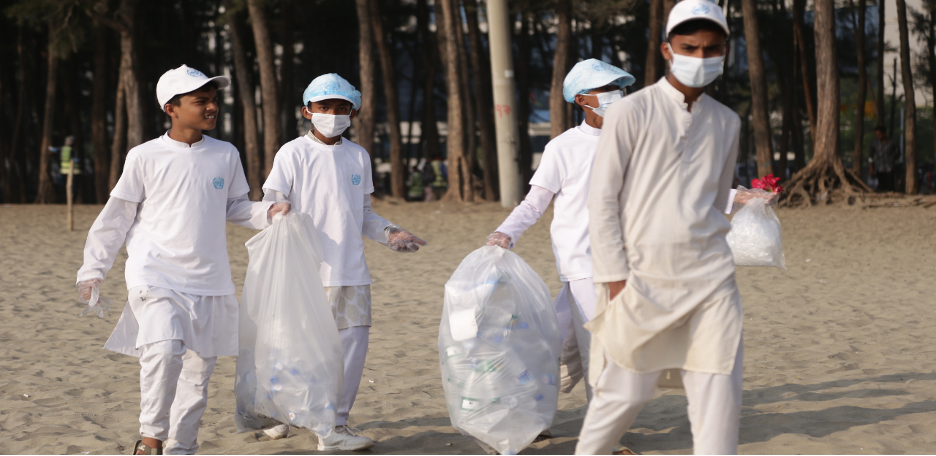
Recognizing that plastic pollution begins at the point of use, this component focuses on influencing mindsets and practices at the household, community, and institutional levels. Through school programs, cleanups, debates, and market interventions, it brings awareness closer to people’s everyday realities, bridging knowledge with action.
Eco-Club Models: Youth at the Forefront
In Cox’s Bazar, the project introduced Eco-Clubs in schools and Madrasas, transforming students into leaders of change. These clubs organized cleanups, created waste collection systems, and reinvested proceeds from recyclables to fund awareness campaigns. Over 10,000 students were engaged, and nearly 1,500 kg of plastic was collected through student-led activities.
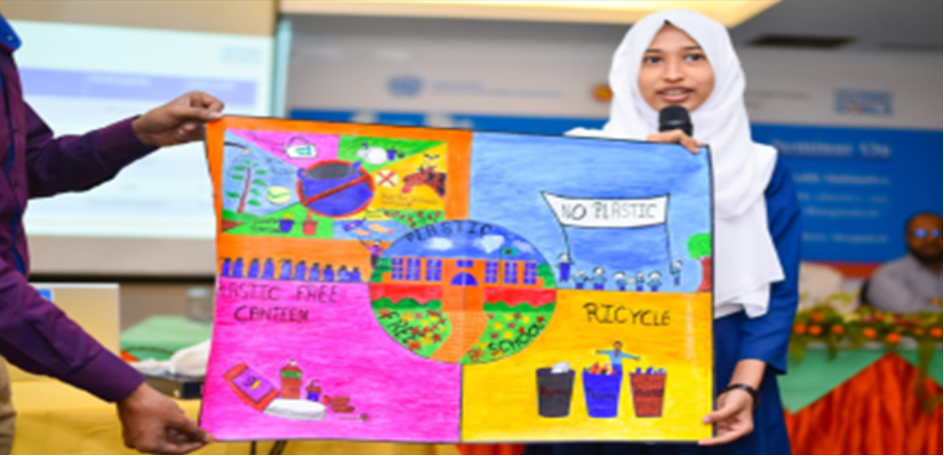
These models also emphasize gender inclusion, with young girls taking on leadership roles ensuring environmental advocacy is both equitable and effective. Regular leadership development seminars further supported this youth mobilization.
Mobilizing Fisher Communities: From Polluters to Protectors
In the coastal belt of Cox’s Bazar, over 12,000 artisanal fishers have been sensitized through training and seminars. With plastic often used and discarded at sea, fishers are now actively collecting marine litter during fishing trips, supported by a plastic registration and value chain system.
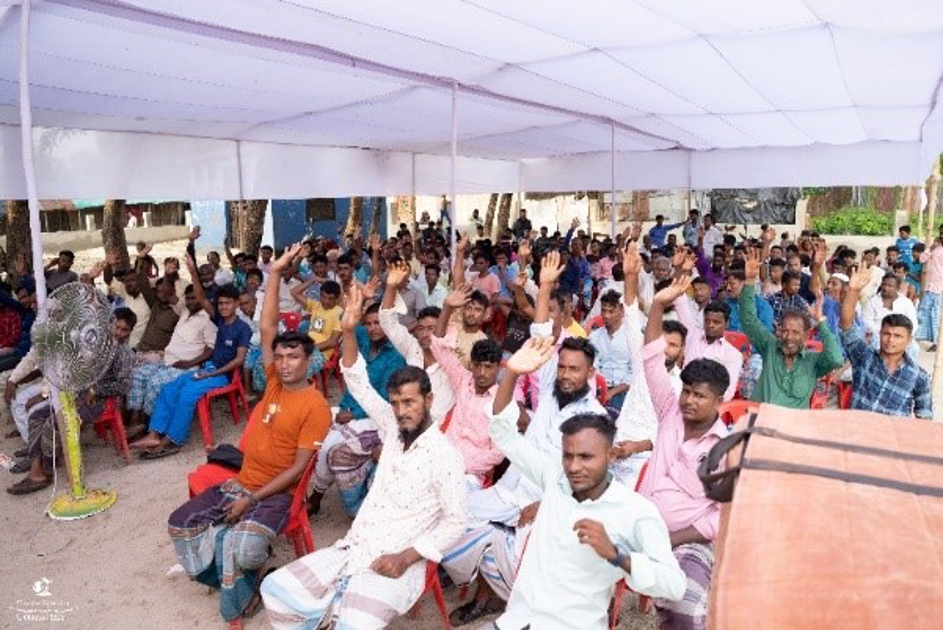
This has created an inclusive, circular system where women and youth in fishing households participate in plastic recovery, sorting, and awareness building, turning waste into an income-generating resource while protecting marine biodiversity.
Market-Based Campaigns: Cleaning Bazaars, Shifting Culture
The project targeted kitchen markets, a major source of urban plastic leakage. At Taltola Market and others, UNIDO and DoE collaborated with market committees and local retailers to organize cleanup campaigns, educate vendors, and launch poster-based awareness drives.
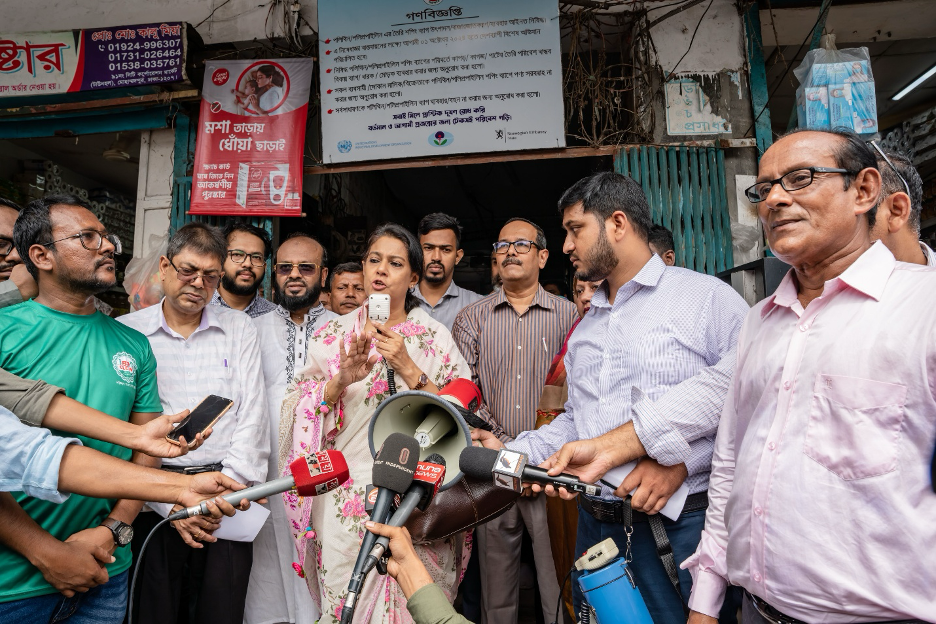
Through visible improvements and consistent community engagement, market actors committed to reducing single-use plastic and maintaining clean surroundings, proving that even informal sectors can champion sustainable change when empowered.
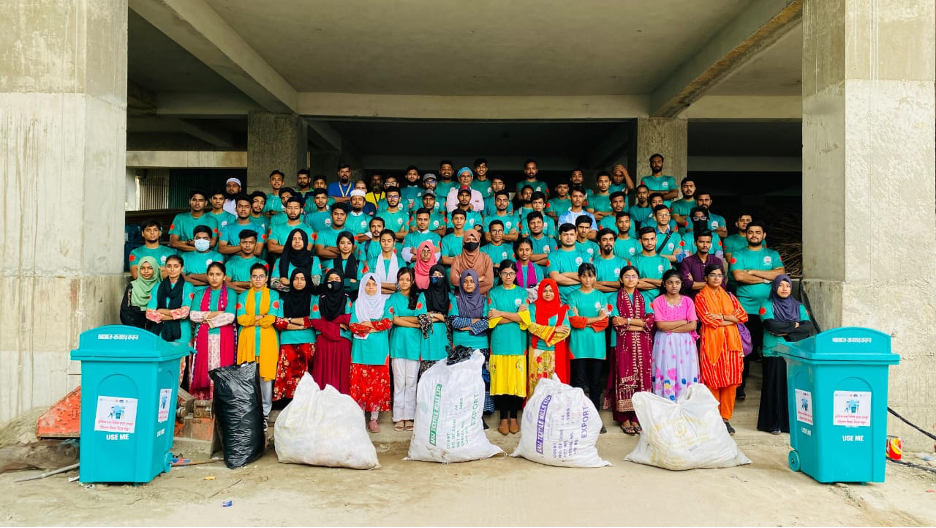
University and School Engagement: Cleanups, Dialogues, and Debate
Component 2 has also led large-scale youth engagement through inter-school and inter-university debate competitions, cleanup events, and capacity-building workshops. Over 1,300 school students and 5000+ university participants debated topics such as plastic bans, circular economies, and environmental justice.
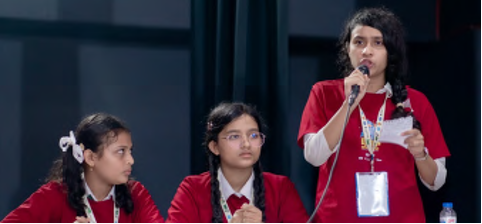
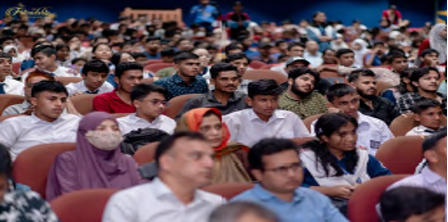
These events weren’t limited to dialogue—they included university-wide cleanup drives, seminars, and hostel awareness campaigns. At Dhaka University, BUET, and Dhaka Medical College, more than 350 trained volunteers led hall-to-hall plastic collection and student outreach, establishing a prototype for “plastic-free campus models.”
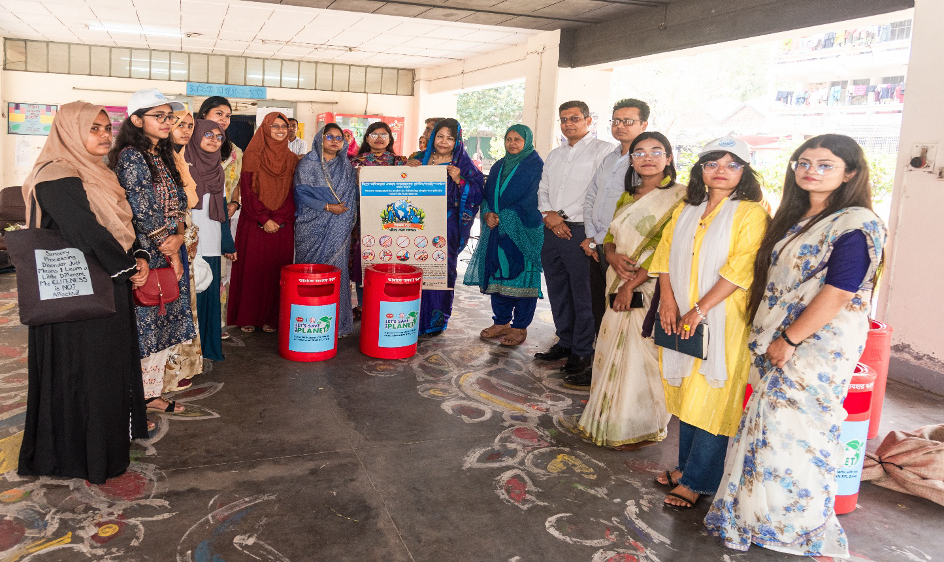
Institutional Influence: From Students to Secretariats
The learnings from youth campaigns inspired institutional cleanups, including a high-level seminar at the Bangladesh Secretariat, which led to the landmark decision to ban SUPs across all ministries from October 2025. This shows how awareness efforts under Component 2 ripple upwards into policy influence.
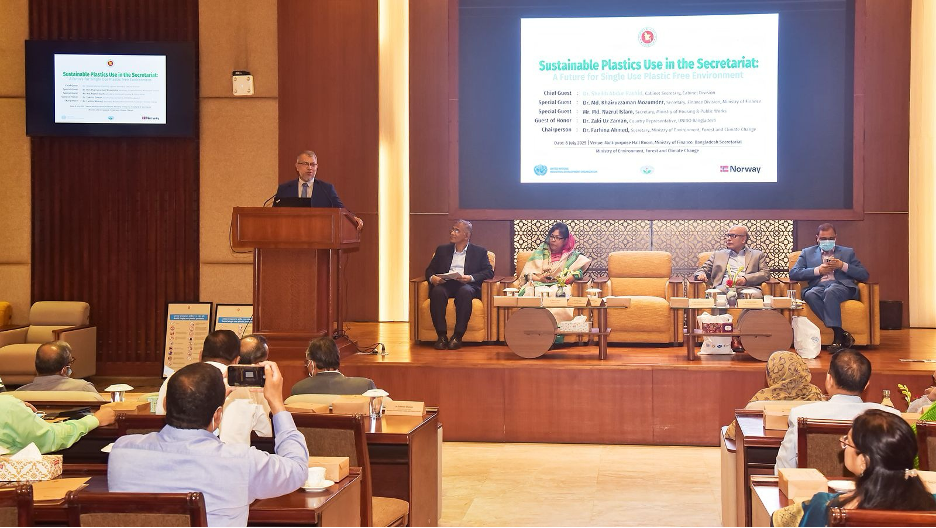
Gender Inclusion: At Every Level
From school cleanups to fisher seminars, women and girls have been intentionally engaged—as debaters, Eco-Club leads, plastic collectors, and awareness campaigners. Gender-disaggregated participation is tracked, and interventions are designed to ensure that voices across all identities are represented and empowered.
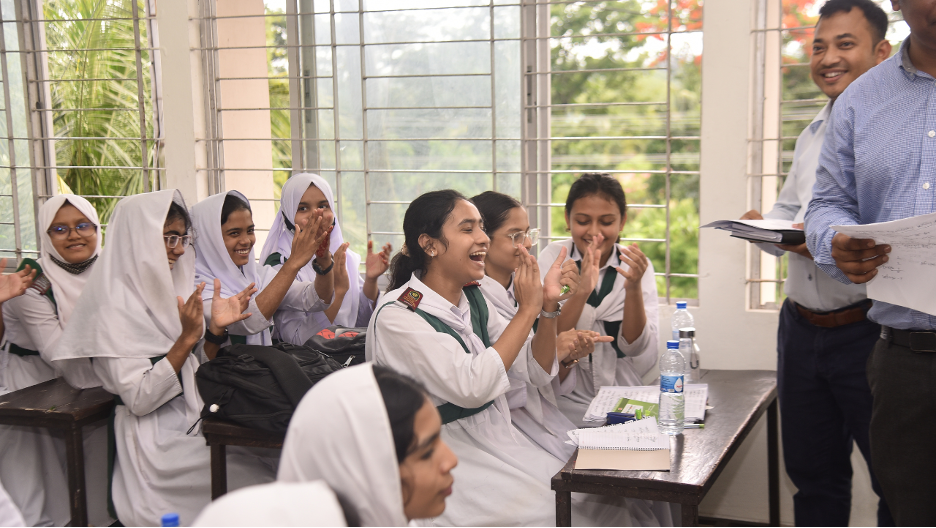
Conclusion: Building a Movement for Informed Citizens
By blending education with action, Component 2 has cultivated a nationwide movement, one that is youth-led, community-driven, and institutionally backed. It builds not only awareness but an agency where every day people become stewards of sustainability, from coastal villages to capital campuses.
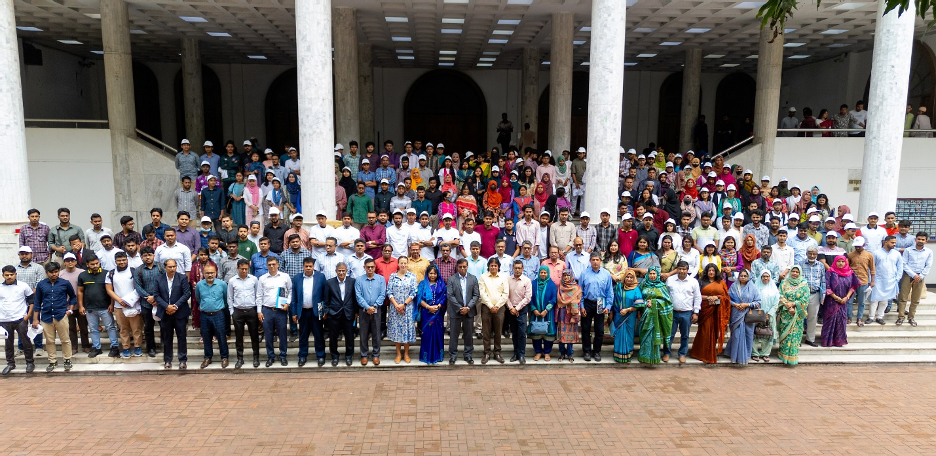
Upcoming Events
Patharghata Clean-up Event
- 11 Dec, 2025
- Patharghata
- Register Now
Barguna Sadar Clean-up Event
- 10 Dec, 2025
- Barguna Sadar
- Register Now
Pirojpur Cleanup
Every cleanup starts with someone willing to take the first step. By registering as a Community Leader, you’re not just signing up for an event — you’re committing to be part of a growing mov...
- 22 Sep, 2025
- Pirojpur, Bangladesh
- Register Now